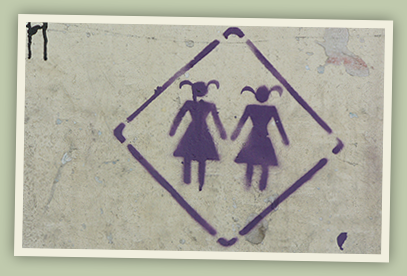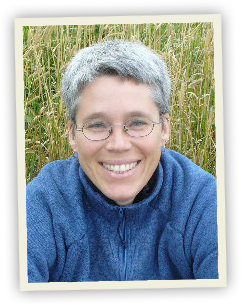Contact / FAQ
Questions
How can I contact you?
Where is your office and what are your hours?
Do you have a blog?
What type of counselling do you do?
What is your therapeutic approach?
What are your qualifications?
Do you have any specialized training?
What is the BC College of Registration of Social Workers?
What is different about a counsellor with a social work background?
What is a Clinical Registered Social Worker?
What are your fees and preferred payment?
Do you bill third party?
Can I claim my receipt on my income tax?
Do you provide a free initial consultation?
Who are you affiliated with?
Do you offer video or telephone sessions?
Do you offer crisis support?
How can I contact you?
My telephone number is 604-771-8647 and my fax number is 604-875-9704.
My email address is tzcounselling@icloud.com and my mailing address is:
Tania Zulkoskey Counselling
Grandview RPO
PO Box 78072
Vancouver, BC
V5N 5W1
Where is your office and what are your hours?
My office is in East Vancouver near Broadway and Commercial. I have both day and evening appointments available. I do not offer weekend appointments.
Do you have a blog?
Yes. You can find out more about who I am and what I do on my blog: tzcounselling.blogspot.ca.
What type of counselling do you do?
I work with people on a wide range of issues, with particular emphasis on:
Relationships, Parenting, 2SLGBTQIA+, Pregnancy & Fertility, Children/Youth, Trauma/Abuse, Wellness, Twins, Two Spirited Lesbian, Gay, Bi-Sexual, Transgender, Queer, Questioning; Intersex, Asexual+ Consultation/Supervsion
- Relationship difficulties. Clarifying communication, roles, hopes and expectations.
- New parents and seasoned parents. Working with children and families closely to enhance their family connections, to increase communication and to process difficult events and parenting experiences. Parenting concerns are explored with respect, and with a non-judgmental approach.
 Two-Spirit, Lesbian, Gay, Bi-Sexual, Transgender, Queer and Questioning+- A queer-friendly environment allows you to explore thoughts and feelings about relationships, family of origin issues, school or workplace difficulties, coming out and parenting.
Two-Spirit, Lesbian, Gay, Bi-Sexual, Transgender, Queer and Questioning+- A queer-friendly environment allows you to explore thoughts and feelings about relationships, family of origin issues, school or workplace difficulties, coming out and parenting. - Pregnancy and Fertility issues Pre and post pregnancy issues, challenges, fears, frustrations, depression, and anxiety. Hopes and strengthening relationships too!
- Children & youth issues - Sexual abuse and behavioural concerns. Parent or peer relationship difficulties, school challenges, gay and transgendered issues, divorce/separation, sexual exploitation and traumatic events such as car accidents, fires, and bullying. I see children from age 4 to 18 years. Both parents/caregivers consent required for counselling, including divorced parents unless a court order states full custody and guardianship.
- Trauma and Abuse - both present and historical. Childhood abuse and relationship violence on a continuum. Single event traumas. Post-traumatic stress disorder (PTSD) symptoms.
- Health and Wellness - Managing stress, anxiety, depression, low energy, change in mood, and sleeping problems. Focusing on what is working, areas of strength and desired change is encouraged.
- Twins and multiple-births Support times 2! Understanding, debriefing, surviving and thriving.
- Consultation and Supervision Individual and group clinical consultation.
- Community Disasters - Critical Incident Stress Management and psychosocial support. This includes events such as floods, fires, pandemics, earthquakes, tsunamis, marine disasters, traumatic work place incidents and any event that involves a community response to a disaster. Debriefings and defusings available.
What is your therapeutic approach?
I practice from a holistic perspective, which includes a feminist and creative approach and is client centered. This means I view myself as a supportive guide to help you find the answers within you, and to offer you a non-judgmental environment to explore your thoughts and feelings.
My perspective on a feminist approach is to explore gender roles and expectations for both men and women, in heterosexual and same-sex relationships. This is done by examining many layers to a problem or concern, and exploring how society influences us personally and politically thus impacting our daily lives. It can also include exploring people’s problems by looking at personal power, inequality and privilege.
With my background in social work, I also incorporate Family Systems Theory. This entails looking at how families and individuals interact based on their family of origin experiences, as well as within their larger community and culture. Counselling is a journey of self discovery and I see my role as a witness and supportive guide. You decide the path.
What are your qualifications?
I have been a practicing social worker since 1995. I completed a 4 year undergraduate Bachelor of Social Work (BSW) University degree in 1995 and a Masters of Social Work (MSW) degree in 1999.
I have been a Registered Social Worker (RSW) since 1995 and a Clinical Registered Social Worker since 2006, the first year this designation came to B.C.
I began my private counselling practice in 2002. To engage in private practice in B.C. all Registered Social Workers must be approved by the BC College of Registration of Social Workers.
As well, I am licensed and insured to practice social work in B.C.
Do you have any specialized training?
As a Certified Trauma Specialist I have demonstrated extensive education and experience specifically related to trauma. This training includes a Trauma Counselling and Clinical Intervention Certificate, completed at the Justice Institute of British Columbia in 2001.
One of the tools I have training with and use in processing trauma is Eye Movement Desensitization Reprocessing (EMDR).I completed part one and two in 2004 and advanced EMDR training in 2007. EMDR began as a psychotherapy treatment to alleviate distress symptoms related to trauma.
I am Certified in Critical Incident Stress Management (2004) through the Justice Institute of B.C. I am able to offer individual and group defusing’s and debriefings. With this, I have education and experience providing psychosocial support for work place crisis and community disasters.
I also regularly participate in professional training and workshops. For example, I have completed John Gottman workshops (level I and II) on working with couples.
What is the BC College of Social Workers?
"The College of Registration for Registered Social Workers (BRSW) is the regulatory body for the profession in British Columbia." Their mandate is to protect the public from preventable harm by ensuring registered social workers have the qualifications and follow the Standards of Practice and Code of Ethics.
Not all "Registered Counsellors" are accountable to a Board that is mandated to protect the public from preventable harm. Nor are all "counsellors" mandated to follow standards of practice that is ethical and accountable. It's important to know and ask a prospective counsellor if they belong to a Regulatory Body. A Regulatory Body should have a complaint process.
It is also important to know that not all "Clinical Counsellors" are registered professionals accountable to a Board. What this means is that anyone can call themselves a "Clinical Counsellor" and portray themselves with qualifications that are not necessarily legitimate. It is important to clarify all qualifications and registrations with the prospective counsellor.
Registered Social Workers are governed by the Social Workers Act of British Columbia.
What is different about a counsellor with a social work background?
Social workers work with individuals and families within the context of "systems." Social workers view people's difficulties in context of their families and society. This includes seeing the individual within a larger social environment.
 Social workers use a "biopsychosocial" perspective. This means looking at the individual in a context that includes a biological, psychological and social perspective. All aspects of the individual are relevant and important to their personal and social functioning. Individuals are seen as parts of larger systems: families, community, and society.
Social workers use a "biopsychosocial" perspective. This means looking at the individual in a context that includes a biological, psychological and social perspective. All aspects of the individual are relevant and important to their personal and social functioning. Individuals are seen as parts of larger systems: families, community, and society.
In contrast to psychologists, psychiatrists and some other counselling professionals, social workers pay particular attention to the person in their environment. For example, depression might be treated with medication in the medical model, whereas a social worker would also consider treatment that focuses on changing environmental factors. Environmental factors could include poverty, domestic violence, relationship difficulties, lack of parenting support, substance misuse, and harassment.
The aim of counselling by a social worker is self-awareness and empowerment.
What is a Clinical Registered Social Worker?
Clinical Registered Social Workers have demonstrated advanced knowledge and skills in clinical practice. This includes assessment and diagnosis such as the DSM-IV. The DSM-IV is the standard diagnostic tool used in mental health assessments.
To become a Clinical Registered Social Worker you are also required to pass a Social Work Association Board exam. This makes the designation of Clinical Registration distinctive in comparison to other counselling associations.
What are your fees and preferred payment?
Session are 50 minutes in length.
Individual sessions are $160.00 for individual adults and youth. Couples, families, parent-child and multiple-relationship joint sessions are $175.00. Unfortunately I do not offer a sliding scale. If you require a specific arrangement for a payment plan we can discuss this.
Telehealth and Virtual sessions are paid with E-transfer the morning of your session. Receipts will be uploaded to a program called SYNC which you will be given a link to and you can download your receipts as needed. Post-pandemic in-person sessions can pay with cheques, VISA, MasterCard, cash and E-transfer at the time of the session. 24 hour notice is required for canceled appointments or the full fee will be charged. If you are sick or experiencing any COVID-19 symptoms please reschedule.
Do you bill third party?
Third party billing is available for:
- Specific Ministry for Children and Families programs.
- I no longer bill under the Crime Victim Assistance Program. You will be required to pay the full fee.
Receipts are provided for you to request reimbursement through other EAP/EFAP, Extended Health or Health Insurance Programs.
Can I claim my receipt on my income tax?
Yes! This is one of the advantages of seeing a registered clinical social worker. Registered clinical social workers are recognized as ‘medical practitioners’ under the Income Tax Act. This means you can claim your counselling or your families counselling on your income tax return. For more information on this, please see these websites:
www.bccollegeofsocialworkers.ca/public-area/overview.htm
www.cra-arc.gc.ca/medical
Do you provide a free initial consultation?
I provide a free initial consultation for 15 minutes so you can make sure you feel comfortable with me and that there is a "fit." You have the option of attending in person or a telephone conversation. This is your opportunity to do the screening.
Who are you affiliated with?
I am affiliated with the BC Association of Social Workers (BCASW) and the BC College of Social Workers (BCCSW). This is so I can engage in private practice and be accountable to a governing body. I also believe in and support the Code of Ethics for social work practice.
I also belong to the Association of Traumatic Stress Specialists (ATSS). They are the international governing body for Certified Trauma Specialists.
Do you offer video or telephone sessions?
For clients in British Columbia I provide video and telephone sessions. I use a program called Doxy.me, designed for use by health care and counselling professionals. The program is encrypted, works on most browsers and you do not need to download any software to use it. Doxy.me does not store any health information. It is compliant with PHIPA, PIPEDA, HIPAA, and to the best of my knowledge PIPA requirements.
Prior to any telephone or video sessions clients are required to sign my Consent to use Electronic Communications form. There are inherent risks in using electronic communications. Despite reasonable efforts to protect privacy and security some of the limits include, but are not limited to information being disclosed to third parties, malware, misdirected messages, and interception. Communication challenges are also associated with electronic services including, but not limited to technical disruptions and visual and emotional cues being misunderstood.
Folks with persistent and unmanaged mental health issues may be referred to other community services as phone and video sessions would not be appropriate.
Do you offer crisis support?
If you require immediate assistance or crisis counselling, please contact the BC Crisis Line: 604-872-3311 or the Mental Health Support Line: 310-6789 or the Suicide Crisis Line: 1-800-784-2433 or call 911 or go to your nearest Emergency Department.





